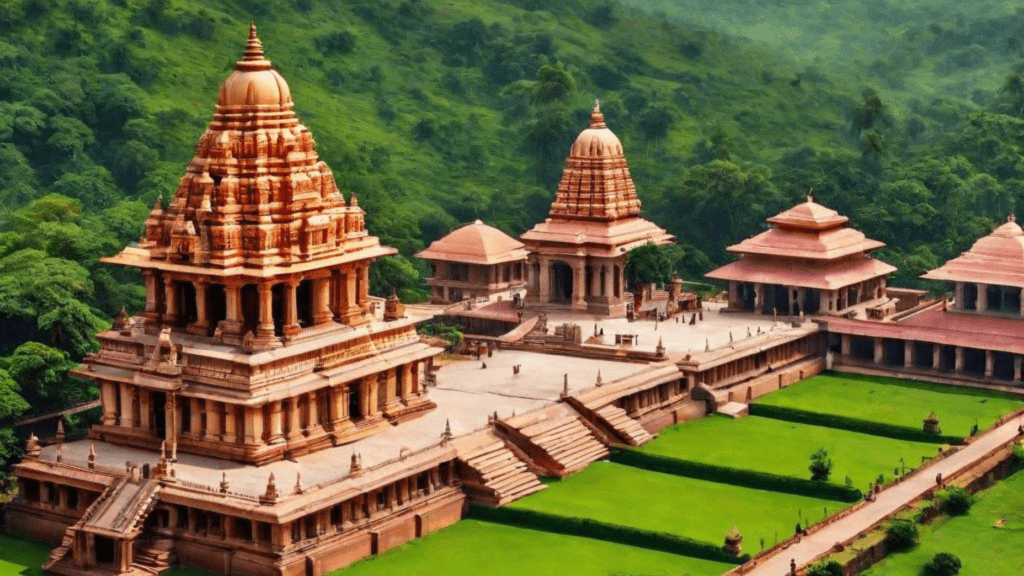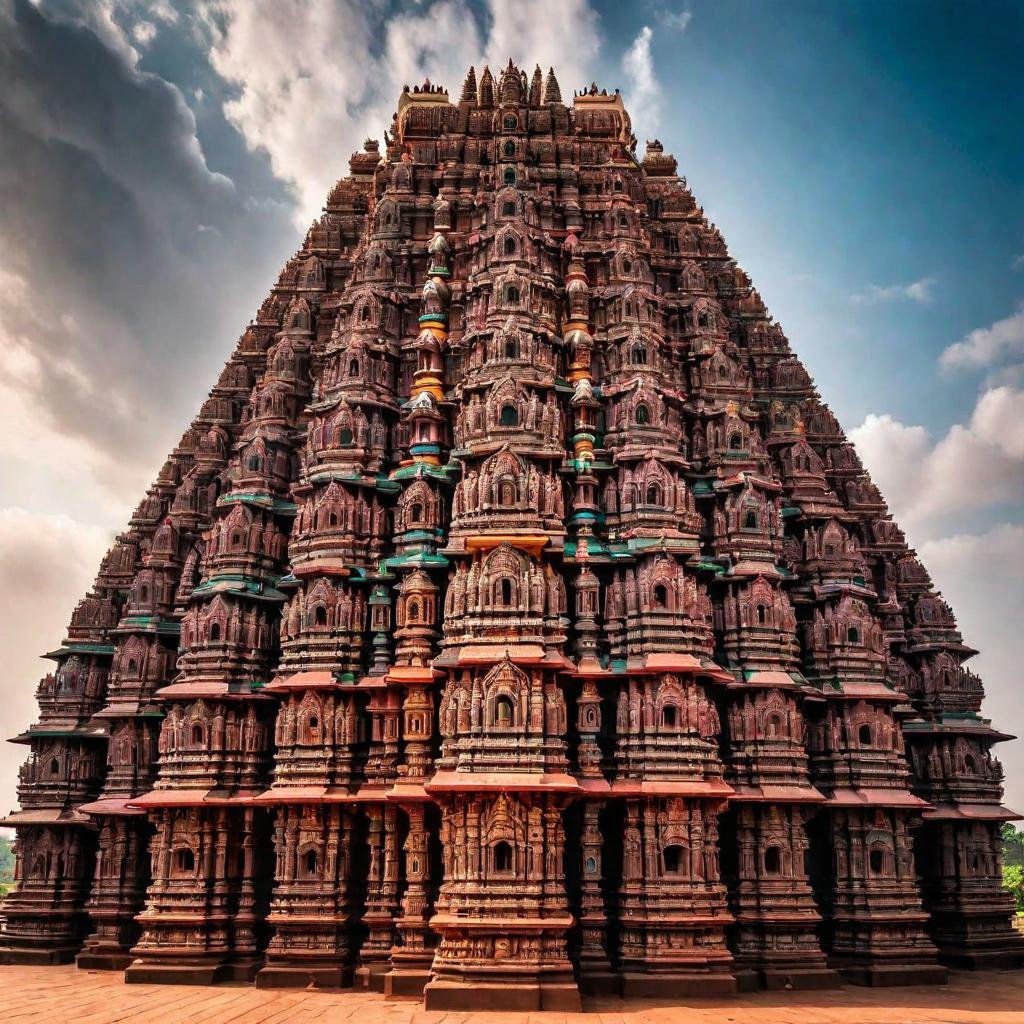Introduction
The Mystical Allure of Karnataka
Nestled in the southern part of India, Karnataka is a state that beckons travelers with its rich tapestry of history, culture, and spirituality. The land’s mystical allure is deeply rooted in its diverse spiritual traditions and sacred sites that have drawn pilgrims for centuries. The spiritual places in Karnataka are not merely tourist attractions but profound experiences that offer a glimpse into the region’s soul.
Importance of Spiritual Places in Karnataka
The importance of spiritual places in Karnataka extends beyond religious significance. These sites serve as cultural hubs, preserving ancient practices and fostering a sense of community. They are sanctuaries of peace and introspection, where visitors can connect with their inner selves and the divine.
Historical Background
Ancient Roots of Karnataka’s Spirituality
Karnataka’s spiritual heritage dates back to the pre-Vedic period, with evidence of early ritualistic practices and worship of nature. The region’s spirituality has evolved through centuries, influenced by various dynasties and religious movements. From Jainism and Buddhism to Hinduism and Islam, Karnataka has embraced a multitude of faiths, each contributing to its rich spiritual tapestry.
Evolution of Religious Practices
Over the centuries, the religious practices in Karnataka have undergone significant transformations. The arrival of various saints and sages introduced new philosophies and rituals, enriching the spiritual places in Karnataka. Temples and monasteries became centers of learning and devotion, where ancient scriptures were studied, and spiritual discourses held.
Major Pilgrimage Sites

Udupi: The Abode of Lord Krishna
Udupi, renowned for its Krishna Temple, is a major pilgrimage site that attracts devotees from across the globe. The temple, established by the saint Madhvacharya, is famous for its unique idol of Lord Krishna, adorned with a churning rod. The serene atmosphere and the daily rituals create a spiritual ambiance that is both captivating and uplifting.
Shravanabelagola: The Jain Epicenter
Shravanabelagola, home to the towering statue of Lord Gomateshwara, is one of the most significant Jain pilgrimage sites. The 57-foot monolithic statue, carved out of a single granite rock, stands as a testament to the region’s rich Jain heritage. The site is also known for the Maha Mastakabhisheka festival, a grand event held every twelve years, attracting thousands of devotees.
Gokarna: The Sacred Shoreline
Gokarna, a quaint coastal town, is revered for its ancient temples and pristine beaches. The Mahabaleshwar Temple, dedicated to Lord Shiva, is the town’s spiritual nucleus. Pilgrims flock here to seek blessings and to perform rituals, particularly during the Maha Shivaratri festival. Gokarna’s serene beaches provide a perfect setting for meditation and spiritual retreats.
Temples of Architectural Splendor

Chennakesava Temple, Belur
The Chennakesava Temple in Belur is a masterpiece of Hoysala architecture. Built in the 12th century, the temple is adorned with intricate carvings and sculptures that depict various mythological scenes and deities. The temple’s grandeur and the detailed craftsmanship offer a visual feast, making it a significant spiritual and cultural landmark.
Hoysaleswara Temple, Halebidu
Another gem of Hoysala architecture, the Hoysaleswara Temple in Halebidu, is dedicated to Lord Shiva. The temple’s walls are adorned with thousands of sculptures, each telling a story from Hindu mythology. The serene surroundings and the temple’s spiritual ambiance make it a must-visit for those exploring the spiritual places in Karnataka.
Virupaksha Temple, Hampi
Located in the historic city of Hampi, the Virupaksha Temple is a UNESCO World Heritage site. The temple, dedicated to Lord Shiva, dates back to the 7th century and has been an important pilgrimage site ever since. The annual chariot festival, celebrated with great fervor, attracts devotees and tourists alike.
Spiritual Retreats and Ashrams
Art of Living International Center
Founded by Sri Sri Ravi Shankar, the Art of Living International Center in Bengaluru is a renowned spiritual retreat. The center offers courses on yoga, meditation, and stress management, attracting visitors from around the world. The tranquil surroundings and the holistic approach to well-being make it a haven for those seeking spiritual rejuvenation.
Ramakrishna Ashram, Bengaluru
The Ramakrishna Ashram in Bengaluru is part of the global network of ashrams dedicated to the teachings of Swami Vivekananda. The ashram offers spiritual and educational programs, focusing on self-improvement and community service. The serene environment and the ashram’s spiritual activities provide a perfect setting for contemplation and growth.
Lesser-Known Sanctuaries
Nanjanagudu Temple
The Nanjanagudu Temple, located on the banks of the Kapila River, is often referred to as the Kashi of the South. Dedicated to Lord Shiva, the temple is known for its rich history and spiritual significance. Pilgrims visit the temple to seek blessings and to participate in the various rituals and festivals held throughout the year.
Melkote Temples
The temples of Melkote, particularly the Cheluvanarayana Swamy Temple, are significant pilgrimage sites in Karnataka. Located on a hilltop, the temples offer panoramic views and a serene atmosphere conducive to meditation and reflection. The annual Vairamudi festival, where the deity is adorned with a diamond crown, is a major attraction.
Festivals and Fairs
Maha Mastakabhisheka Festival
The Maha Mastakabhisheka festival, held in Shravanabelagola, is a grand Jain event that occurs once every twelve years. During the festival, the statue of Lord Gomateshwara is anointed with various substances, including milk, saffron, and sandalwood paste. The event attracts thousands of devotees and is a spectacle of devotion and tradition.
Sri Krishna Janmashtami
Sri Krishna Janmashtami, the birthday of Lord Krishna, is celebrated with great enthusiasm in Udupi. The festivities include various rituals, cultural performances, and the enactment of episodes from Krishna’s life. The vibrant celebrations and the spiritual fervor make it a memorable experience for pilgrims and visitors.
Sacred Natural Sites
Chamundi Hills
Chamundi Hills, overlooking the city of Mysuru, is home to the Chamundeshwari Temple. The temple, dedicated to Goddess Chamundeshwari, is a significant pilgrimage site. The climb up the hill, either by steps or by road, offers a spiritual journey with panoramic views of the city and surrounding landscapes.
Kudremukh: The Horse-Faced Peak
Kudremukh, meaning horse-faced, is a mountain range known for its stunning natural beauty and spiritual significance. The region is dotted with ancient temples and is a popular destination for trekking and meditation. The tranquil environment and the lush greenery make it an ideal place for spiritual retreats.
Rituals and Traditions
Daily Puja Practices
The daily puja practices in Karnataka’s temples are a blend of devotion, tradition, and spirituality. The rituals, performed with meticulous care, include chanting of hymns, offering of flowers and food, and the lighting of lamps. These practices create a sacred atmosphere that elevates the spiritual experience of the devotees.
Rituals During Festivals
Festivals in Karnataka are marked by elaborate rituals and ceremonies that reflect the region’s rich cultural heritage. These rituals, passed down through generations, include processions, dance performances, and the offering of special prayers. The vibrant and festive atmosphere adds to the spiritual significance of these events.
Spiritual Tourism
Growth and Impact
Spiritual places in Karnataka has seen significant growth in recent years, attracting visitors from around the world. The state’s diverse spiritual heritage, coupled with its natural beauty, makes it a prime destination for those seeking spiritual enrichment. The influx of tourists has also had a positive impact on the local economy and infrastructure.
Ecotourism and Spirituality
The concept of ecotourism is gaining popularity in Karnataka, blending environmental conservation with spiritual experiences. Eco-friendly resorts and retreats are being developed in harmony with nature, offering visitors a chance to reconnect with themselves and the environment. This approach promotes sustainable tourism while preserving the state’s natural and spiritual heritage.
Influence on Local Culture
Arts and Crafts
The spiritual places in Karnataka have had a profound influence on the local arts and crafts. Traditional crafts such as sandalwood carving, silk weaving, and pottery are often inspired by religious motifs and themes. These art forms are not only a source of livelihood but also a means of preserving and promoting the region’s cultural heritage.
Music and Dance
Music and dance are integral to Karnataka’s spiritual traditions. Classical forms like Carnatic music and Bharatanatyam dance often depict stories from mythology and religious texts. These performances, held in temples and during festivals, enhance the spiritual atmosphere and offer a deeper understanding of the region’s cultural roots.
Spiritual Practices
Yoga and Meditation
Yoga and meditation are widely practiced in Karnataka, with many ashrams and centers offering courses and retreats. These practices, rooted in ancient traditions, promote physical and mental well-being and provide a path to spiritual awakening. The serene surroundings and the expert guidance available make Karnataka an ideal place for spiritual practices.
Ayurveda and Healing
Ayurveda, the ancient system of medicine, is closely linked to spirituality in Karnataka. Ayurvedic centers and spas offer treatments and therapies that promote holistic health and well-being. These practices, based on natural and herbal remedies, are an integral part of the region’s spiritual and cultural heritage.
Modern-Day Spiritual Movements
New Age Spirituality
New Age spiritual movements have found a place in Karnataka, blending traditional practices with contemporary beliefs. These movements focus on personal growth, self-awareness, and a holistic approach to life. Workshops, retreats, and seminars on topics like mindfulness, energy healing, and alternative therapies are becoming increasingly popular.
Digital Age and Spirituality
The digital age has brought about a transformation in the way spirituality is practiced and accessed. Online platforms and social media have made spiritual teachings and practices more accessible to a global audience. Karnataka’s spiritual leaders and organizations are leveraging technology to reach out to a wider audience and promote their teachings.
Personal Stories and Experiences
Pilgrim Tales
The spiritual places in Karnataka are replete with stories of pilgrims who have found solace and enlightenment. These tales of devotion, faith, and miracles are an integral part of the region’s spiritual narrative. Pilgrims often share their experiences, creating a sense of community and inspiring others to embark on their spiritual journeys.
Traveler Reflections
Travelers to Karnataka’s spiritual sites often reflect on the profound impact of their experiences. The serene landscapes, the vibrant festivals, and the ancient temples leave an indelible mark on their souls. These reflections, shared through blogs, articles, and social media, offer a glimpse into the transformative power of Karnataka’s spiritual heritage.
The Role of Women in Karnataka’s Spirituality
Female Saints and Scholars
Women have played a significant role in Karnataka’s spiritual history. Female saints and scholars, such as Akka Mahadevi and Gangamma, have made invaluable contributions to the region’s spiritual and cultural heritage. Their teachings and writings continue to inspire and guide devotees to this day.
Women’s Participation in Rituals
Women actively participate in the rituals and ceremonies at the spiritual places in Karnataka. Their involvement ranges from performing daily pujas to organizing festivals and community events. This participation not only upholds traditions but also empowers women and fosters a sense of equality and respect within the spiritual community.
Preservation of Spiritual Heritage
Government Initiatives
The government of Karnataka has undertaken various initiatives to preserve and promote the state’s spiritual heritage. These include the restoration of ancient temples, the development of pilgrimage circuits, and the promotion of spiritual tourism. Such efforts ensure that the region’s rich spiritual legacy is passed down to future generations.
Community Efforts
Local communities play a crucial role in preserving spiritual places in Karnataka. Volunteer groups, religious organizations, and cultural associations work together to maintain and promote the region’s spiritual sites and traditions. Their collective efforts ensure that the spiritual places in Karnataka remain vibrant and relevant.
Challenges and Future Prospects
Modernization and Preservation
One of the major challenges facing Karnataka’s spiritual places is the balance between modernization and preservation. While development and infrastructure are necessary, it is equally important to preserve the sanctity and authenticity of these sites. Sustainable practices and community involvement are key to achieving this balance.
Balancing Tourism and Sanctity
The growing popularity of spiritual tourism poses a challenge in maintaining the sanctity of Karnataka’s spiritual places. Efforts are being made to regulate tourism, ensuring that the influx of visitors does not disturb the peaceful and sacred atmosphere of these sites. Responsible tourism practices and visitor education are essential in this regard.
Comparative Analysis
Karnataka vs. Other Indian States
Spiritual places in Karnataka stands out for its diversity and depth. While other Indian states like Tamil Nadu and Kerala also boast rich spiritual traditions, Karnataka offers a unique blend of religious practices, architectural marvels, and natural beauty. This diversity makes it a compelling destination for spiritual seekers.
Global Spiritual Destinations
In comparison to global spiritual destinations, Karnataka holds its own with its unique offerings. While places like Jerusalem, Mecca, and Varanasi are renowned for their spiritual significance, Karnataka’s blend of ancient temples, serene landscapes, and rich cultural heritage offers a distinct and enriching spiritual experience.
Visitor Information
Best Times to Visit
The best time to visit the spiritual places in Karnataka is during the cooler months from October to March. This period is ideal for exploring the temples, attending festivals, and enjoying the natural beauty of the region. The pleasant weather enhances the overall experience, making it a comfortable and enjoyable journey.
Travel Tips
When visiting the spiritual places in Karnataka, it is advisable to dress modestly and respect local customs and traditions. Carrying a reusable water bottle and wearing comfortable footwear can make the journey more pleasant. Engaging with local guides can provide deeper insights into the history and significance of the sites.
Discover India: Off to Karnataka
Karnataka: A State Study Guide
Conclusion
Karnataka’s Enduring Spiritual Legacy
Karnataka’s spiritual places offer a profound and enriching experience that transcends mere tourism. The region’s enduring spiritual legacy is a testament to its rich cultural heritage and deep-rooted traditions. These sacred sites continue to inspire and guide devotees and travelers alike.
Invitation to Explore
Exploring the spiritual places in Karnataka is a journey of discovery and introspection. It is an invitation to delve into the depths of the region’s spiritual heritage and to connect with the divine. Whether you seek solace, enlightenment, or simply a deeper understanding of Karnataka’s cultural tapestry, this journey promises to be a transformative experience.
For more content follow Humstory













